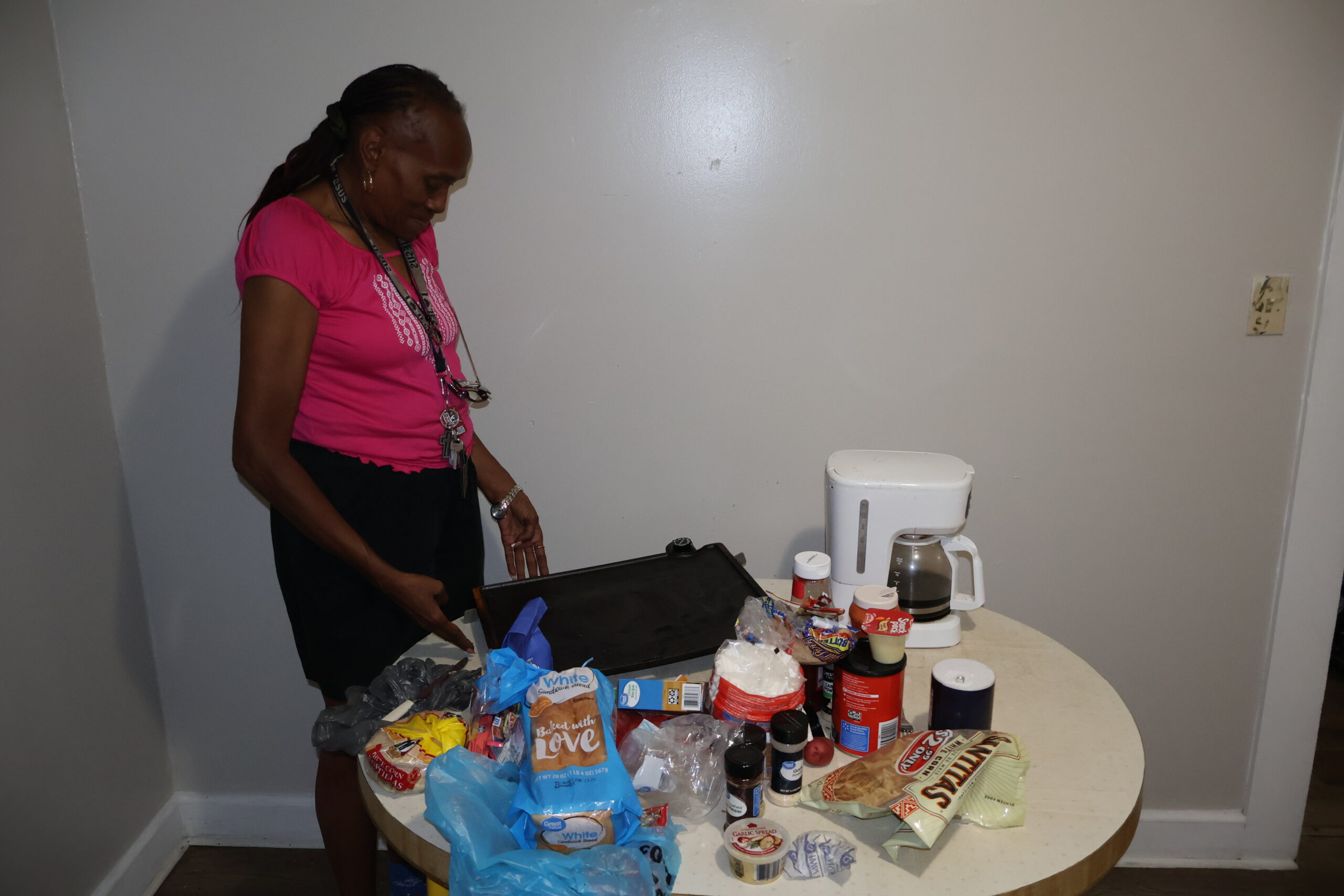
A Lifetime of Love: The Wilsons’ Next Chapter
C.M. and Margareta Wilson shows how senior independence and community support can make aging with dignity possible. After seven decades of love, health challenges made daily l...
Read This Story
After losing their home, sisters Donna and Mynette struggled to survive while waiting five months for Meals on Wheels in North Carolina. Their story reflects the painful reality of seniors waiting for meals in North Carolina — older adults facing hunger, health risks, and heartbreak while funding lags behind growing demand.

Across North Carolina, thousands of older adults are quietly battling hunger and isolation while they wait for the support they desperately need. The waitlists for Meals on Wheels programs continue to grow, fueled by flat funding and rising costs that make it harder for local providers to keep up with demand. Behind every number is a story — a senior forced to ration food, skip medication or risk health and safety just to survive another day.
For many, like sisters Donna and Mynette in Greensboro, the wait for meals isn’t measured in weeks. It’s measured in hunger, exhaustion and the constant fear of what tomorrow will bring. Their story is one of strength and survival, but it’s also a stark reminder that no senior in North Carolina — or anywhere in America — should have to wait for nourishment and care.
When Donna reached out to Senior Resources of Guilford in Greensboro, North Carolina, she had just been evicted and was living on the streets with her older sister, Mynette, who has mental and physical disabilities.
The two had no food, no home and nowhere to turn. Donna had previously received Meals on Wheels in another county and assumed the service would follow her. Instead, she was placed on a waitlist 800 names long – more than four times the national average.
Since the pandemic, the local provider has nearly doubled its daily meal deliveries. It has also hired more staff and secured new funding to serve frozen meals to seniors not yet on hot-meal delivery routes. Even so, demand far outpaces resources, an all-too-common scenario. Federal funding and private donations aren’t keeping pace as food, fuel, labor and utility costs rise and America’s senior population grows. As a result, most adults in Donna’s community wait 12 to 18 months for services.
“In the many years I have been working with the senior population, I find that many are too proud to ask for help,” said Courtney Lake with Senior Resources of Guilford. “So, when a senior calls in needing Meals on Wheels, imagine their disappointment and ours when we have to tell them they are being placed on a waitlist.”
Even with a critical case designation, Donna and Mynette waited five months to receive meals. During that time, they transitioned from homelessness to a modest duplex. When a social worker visited their new home, Donna hadn’t eaten a full meal in two days. Mynette was living off peanut butter-and-jelly sandwiches and had lost weight. Now, the sisters receive nutritious meals every week.
When asked what they would have done if the wait had been longer, Donna said, “I truly can’t even think about that. We have just been through so much.”
Donna and Mynette’s story ends with hope — a modest home, regular meals, and a renewed sense of stability. But for thousands of others across North Carolina, the wait continues. Local Meals on Wheels programs know exactly what to do: they have volunteers ready, routes planned, and seniors waiting. What they lack is the sustainable funding needed to turn those plans into lifelines.
We can change that. Increasing support for the Older Americans Act Nutrition Program and investing in local services would mean fewer families going hungry and fewer seniors waiting for meals. Together, we can ensure that stories like Donna and Mynette’s become the exception — not the rule — and that every older adult in North Carolina receives the care and nourishment they deserve.

C.M. and Margareta Wilson shows how senior independence and community support can make aging with dignity possible. After seven decades of love, health challenges made daily l...
Read This Story

The success of Meals on Wheels in Oklahoma City shows the power of community partnerships for senior care. What began in 1971 as a small group of churches delivering meals has...
Read This Story

Thanks to Meals on Wheels Loves Pets, a program powered by PetSmart Charities, Ron can continue sharing life with his pup, Bleau, without sacrificing his own needs. Through th...
Read This Story

The Meals on Wheels 2025 Year in Review highlights how, despite rising costs and growing need, communities nationwide came together to keep seniors nourished and connected. Fr...
Read This Story